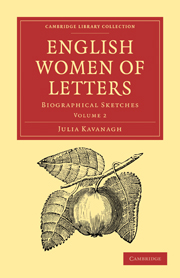Summary
The quiet obscurity of domestic life shrouded the existence of Jane Austen. There are few women of equal genius and fame of whom we know so little as of this celebrated writer. She who painted life so well seems to have lived in almost complete retirement. Her cotemporaries give us little or no information concerning her, and the curiosity of some is significant enough. In a letter, dated February the 10th, 1822, addressed to Miss Baillie, Sir Walter Scott, after complimenting that lady on carrying her literary reputation as freely and easily as the milkmaid in his country carried her leglen, that is to say, on her head, and as gracefully as a duchess, proceeded to observe:
“By-the-way, did you know Miss Austen, authoress of some novels which have a great deal of nature in them? Nature in ordinary and middle life, to be sure, but valuable from its strong resemblance and correct drawing. I wonder which way she carried her pail.”
Gracefully, we may be sure, but we doubt if the question was one Miss Baillie could answer.
Jane Austen was born December 16th, 1775, at Steventon, Hampshire, of which her father had been forty years rector. He was a man of many acquirements, and especially of delicate literary taste. From him his daughter may have derived what Sir Walter Scott called “the finishing off in her scenes,” that minute though never tedious perfection which is, indeed, her great attribute.
- Type
- Chapter
- Information
- English Women of LettersBiographical Sketches, pp. 180 - 187Publisher: Cambridge University PressPrint publication year: 2010First published in: 1863



